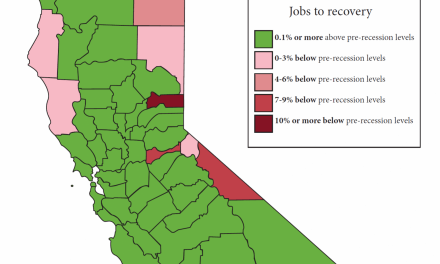MLO Mentor is an ongoing series covering compliance best practices for mortgage loan originators (MLOs). This article continues our discussion of the Notice of Default (NOD) and Notice of Trustee’s Sale (NOTS) — Part I of MLO Mentor: The Notice of Default & Notice of Trustee’s Sale.
A trustee’s sale may be postponed by the trustee at any time prior to the completion of the foreclosure sale. The trustee’s sale may be postponed on the instruction of the mortgage holder or by the trustee at their discretion. [CC §2924g(c)(1)]
To postpone or reschedule a trustee’s sale, the trustee gives a notice of postponement at the time and place stated in the NOTS for the sale by a public declaration of:
- the reason for the postponement; and
- the new date and time of the foreclosure sale. [See RPI Form 474-8]
The postponed trustee’s sale is held at the same place originally stated in the recorded NOTS. [CC §2924g(d)]
Sold to the highest bidder
A trustee’s sale is a public auction by private agreement where the property is sold to the highest bidder. [CC §2924h]
Before the auction begins, the trustee may:
- demand all prospective bidders to show evidence of their financial ability to pay as a precondition to recognizing their bids; and
- hold the prospective bidders’ amounts to be bid. [CC §2924h(b)(1)]
A bidder at auction can tender their bid amount in U.S. dollars in the form of:
- cash;
- a cashier’s check drawn on a state or national bank;
- a check issued by a state or federal thrift, savings and loan association (S&L), savings bank or credit union; or
- a cash equivalent designated by the trustee in the NOTS, such as a money order. [CC §2924h(b)(1)]
Each bid made at a trustee’s sale is an irrevocable offer to purchase the property. However, any subsequent higher bid cancels a prior bid. [CC §2924h(a)]
The trustee’s sale is considered final on the trustee’s acceptance of the last and highest bid. [CC §2924h(c)]
Once the highest bid has been accepted by the trustee, the trustee may require the successful bidder to immediately deposit the full amount of the final bid with the trustee. [CC §2924h(b)(2)]
If the successful bidder tenders payment by a check issued by a credit union or a thrift, the trustee can refrain from issuing the trustee’s deed until the funds become available. [CC §2924h(c)]
Failure to deliver payment of a bid
If a successful bidder tenders payment by check and the funds are not available for withdrawal:
- the trustee’s sale is automatically rescinded; and
- the trustee will send the successful bidder a notice of rescission for failure of consideration. [CC §2924h(c)]
To hold a new trustee’s sale auction, the trustee sets a new trustee’s sale date and records, serves and publishes a new NOTS. The new NOTS follows all the same statutory requirements as the original NOTS.
The successful bidder who fails to tender payment when demanded is liable to the trustee for all resulting damages, including:
- court costs;
- reasonable attorney fees; and
- the costs for recording and serving the new NOTS. [CC §2924h(d)]
Bids by the mortgage holder, a credit
The mortgage holder is frequently the only bidder at the trustee’s sale. Thus, the mortgage holder automatically becomes the successful bidder. The mortgage holder may bid without tendering funds up to an amount equal to the debt secured by the property being sold, plus trustee’s fees and foreclosure expenses. This amount is called a full credit bid. [CC §2924h(b)(2)]
If the mortgage holder is the successful bidder under a full credit bid, the trustee retains possession of the mortgage holder’s note (or other evidence of the mortgaged debt) in exchange for the trustee’s deed to the property.
The mortgage holder is not required to bid the full amount of the indebtedness to acquire the property at the trustee’s sale. The mortgage holder can bid an amount below the full amount of the debt, called an underbid.
Conveyance by a trustee’s deed
On the completion of a trustee’s sale, the trustee uses a trustee’s deed to transfer title to the property on to the successful bidder at the auction.
When a buyer other than the mortgage holder purchases the property for value and without notice of title or trustee’s sale defects, the buyer is considered a bona fide purchaser (BFP).
The BFP’s interest in the property sold is perfected as of 8 a.m. on the date of the trustee’s sale, if the trustee’s deed conveying the property to the BFP is recorded:
- within 15 calendar days after the date of the trustee’s sale; or
- the next business day following the 15th day after the sale if the county recorder is closed on the 15th day. [CC §2924h(c)]
The title received by the third-party BFP is clear of any interest claimed by the owner, mortgage holders or tenants whose interests are junior to the foreclosed mortgage. [Hohn v. Riverside County Flood Control and Water Conservation District (1964) 228 CA2d 605]
However, upon completion of the trustee’s sale, the new owner needs to honor an existing residential lease if it has a fixed term. If the home is to be occupied as a principal residence, the new owner may serve the tenant with a 90-day eviction notice. [CC §2924.8(a)(1); see RPI Form 573]
More importantly, title is taken clear of any unrecorded prior interests or claims in the property held by others not in possession of the real estate. However, to take clear title free of claims, the BFP needs to have no constructive notice or actual knowledge of any existing priority claims when acquiring title to the property at the trustee’s sale. [CC §§1107, 1214]
A lis pendens recorded against the real estate prior to the trustee’s sale places bidders on constructive notice of a lawsuit involving a claim to a right in title or to possession of the real estate. If the claim has priority to the foreclosed mortgage, the lis pendens destroys the BFP status of the successful bidder.
Related article:


















